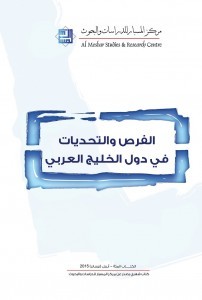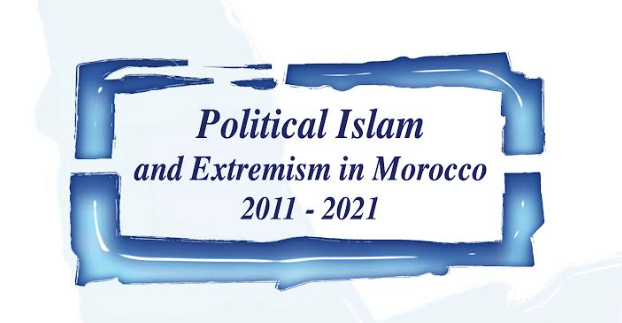 The hundredth edition of Al Mesbar’s monthly book comes at a time of ambiguity in the Gulf: on the one hand, one of the most prosperous periods in the history of the Gulf Cooperation Council; on the other hand, a time of major upheaval throughout the region’s periphery. The significant rises in oil prices over the past decade enabled GCC states to increase their revenues to unprecedented rates, enabling them to pursue development projects on a grand scale. Moreover, new projects in alternative energy sources for local consumption such as nuclear and solar plants are being planned, in addition to measures supporting pioneering work in a variety of sectors — particularly in the realm of technology.
The hundredth edition of Al Mesbar’s monthly book comes at a time of ambiguity in the Gulf: on the one hand, one of the most prosperous periods in the history of the Gulf Cooperation Council; on the other hand, a time of major upheaval throughout the region’s periphery. The significant rises in oil prices over the past decade enabled GCC states to increase their revenues to unprecedented rates, enabling them to pursue development projects on a grand scale. Moreover, new projects in alternative energy sources for local consumption such as nuclear and solar plants are being planned, in addition to measures supporting pioneering work in a variety of sectors — particularly in the realm of technology.
Many success stories on both the individual and corporate levels were achieved over the past decade. The public sector, especially that of the United Arab Emirates, has witnessed increasing development due to a number of factors: development of a judiciary structure, which has enabled the country to attract foreign investments, assuring newcomers to the country of the credibility of the legal process. The UAE topped countries of the MENA region in integrity and effectively combating corruption in an index released by Transparency International.
Meanwhile, despite the turmoil in the Middle East, GCC states managed to avoid the fallout of the “Arab Spring.” Analysts initially conveyed doubts as to whether the dynastic states would manage to weathered the storm of revolutions that overthrew numerous Arab republics and sent Syria and Libya into a devastating civil war.
Amid an increase in terror threats across the region, GCC states have secured their borders, and introduced new and tougher laws to combat terrorism and terrorist financing, notably that which was signed by late Saudi King Abdullah bin Abdul Aziz in February 2014.
From a strategic standpoint, GCC states have gained stature as regional powers following the collapse of Syria over the past four years and the successive domestic crises in Egypt.
Islamist organizations have been thwarted in the UAE and significantly undermined in Saudi Arabia. The GCC has also weathered internal tensions and made advancements towards developing a collective defense system.
But the GCC still faces many international and external challenges. Internal challenges include:
- An increase in unemployment rates among citizens amid high employment rates among migrant works.
- Reliance on oil exports as the major source of revenue for the economy.
- Weak contribution of the private sector to development, and an overall lack of competitive capacity vis a vis the global market.
- An enduring culture spawned by Islamist movements, which has shaped the Gulf’s perception of itself and the world.
In terms of external challenges, Iran remains a major threat to the security of the Gulf, due to its expansionism, its role in Syria, its continuous effort to monopolize politics in Iraq, and its support for the Houthis in Yemen.
The aspiration to form a “Gulf Union” constitutes another challenge for the GCC. Some member states are hesitant to accept the proposition. The situation in Egypt also raises concerns in the Gulf, as Islamists are active against the state in an attempt to cause political and security turmoil.
GCC economies will face pressure along two lines as large industrial states move forward in developing alternative energy sources: meeting domestic needs, and fulfilling regional roles. The devaluation of GCC oil will reduce the strategic importance of the region, with implications for the historic partnership between the GCC states -– particularly Saudi Arabia — and the US. The US foreign policy tilt towards Iran, moving forward in the context of the nuclear talks advanced in the P5+1 negotiations, will allow for a greater regional role for Tehran — raising concerns in the Gulf and possible new tensions in the region.
In the forthcoming monthly book, experts will attempt to shed light on the prominent achievements and challenges that face the Gulf by presenting a variety of studies and cases on the lines of several topics: politics, development, reform, regional issues, etc. We hope the ideas presented in this book provoke new ideas and further research about these issues, especially as we enter a critical historic turn.
The center would like to thank all the experts who contributed to the chapters of this book, in particular Abdullah Hamidaddin and Ibrahim Nimer, who coordinated this edition.









